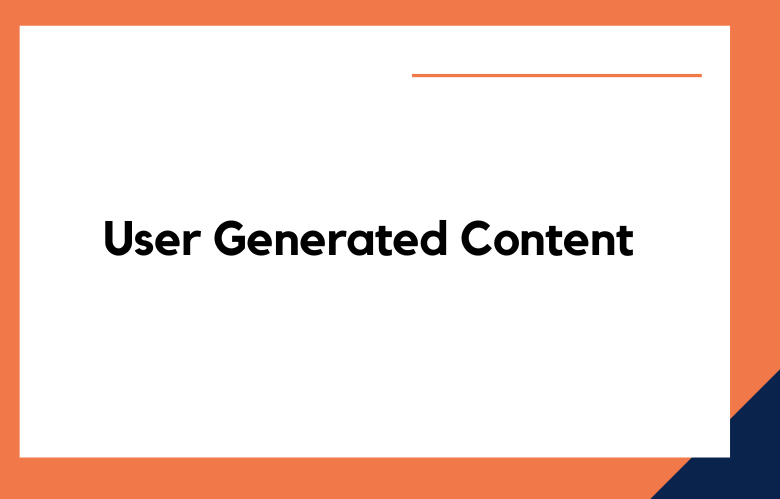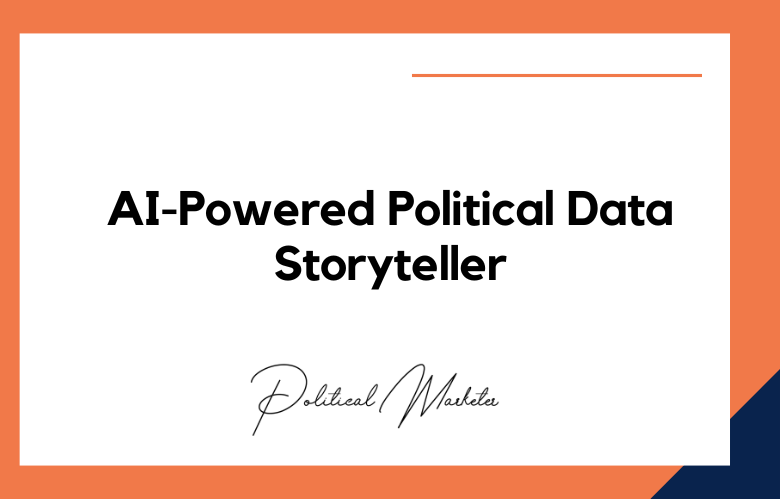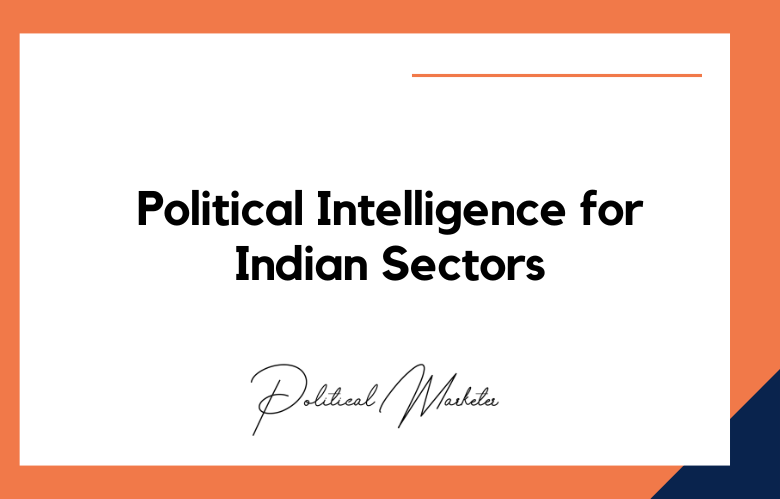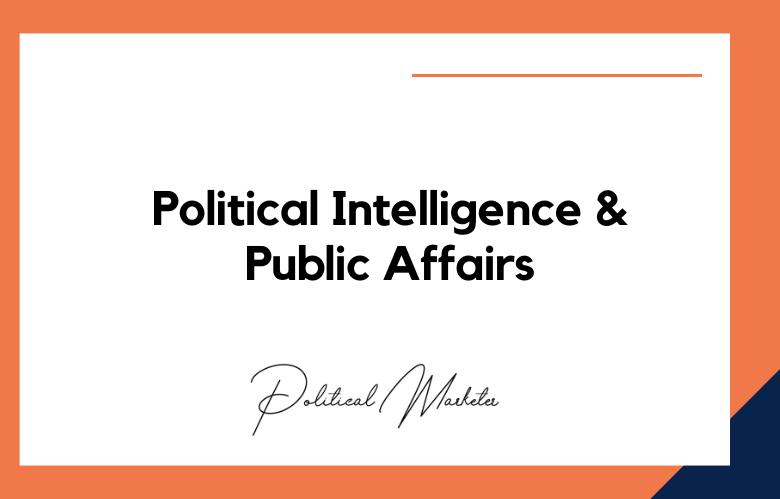User-generated content (UGC) has become ubiquitous in our online experience, allowing individuals to create and share their own content across various platforms. In the political sphere, some leaders have experimented with incorporating UGC into their communication strategies, though the effectiveness and appropriateness of this approach is still a matter of debate.
User Generated Content (UGC) for Political Leaders
On the one hand, incorporating UGC into political messaging can be a way for leaders to connect with their constituents and demonstrate a commitment to transparency and openness. By sharing content created by citizens, political leaders can amplify diverse perspectives and experiences, providing a more comprehensive view of the issues that matter to their constituents.
User-generated content (UGC) is an essential tool for political leaders seeking to build strong connections with their constituents and stay in touch with the pulse of their communities. UGC refers to any content created and shared by users on social media platforms, blogs, forums, or other online spaces.
For political leaders, UGC provides valuable insights into public sentiment, concerns, and aspirations. By monitoring UGC, political leaders can identify emerging trends, respond to issues in real-time, and create campaigns that resonate with their constituents.
Moreover, political leaders can leverage UGC to build an authentic and relatable brand, showcasing the impact of their policies and citizens’ experiences. By incorporating UGC into their messaging, political leaders can create a sense of community and engagement, encouraging their constituents to feel invested in their political journey.
Furthermore, UGC can be an effective tool for political leaders to build community and encourage civic engagement. By encouraging citizens to create and share their content, leaders can foster a sense of ownership and investment in the political process, potentially leading to increased participation and more informed decision-making.
What is User Generated Content (UGC)?
User-generated content (UGC) is any form of content, such as text, images, videos, or audio, created by users of a particular platform or system rather than the platform or system itself. UGC is often created and shared by individuals on social media platforms, online forums, or other online communities and can include anything from personal stories and opinions to creative works and commentary on current events.
UGC has become increasingly prevalent in recent years, as social media and other online platforms have made it easier for individuals to create and share content with a global audience. UGC offers a unique perspective on various topics, providing a window into everyday people’s thoughts, experiences, and creativity.
How User-Generated Content (UGC) for Political Leaders Help
User-generated content (UGC) can be a valuable tool for political leaders, offering a range of benefits to help them better serve their constituents and build more effective and responsive political systems. Here are some of the ways UGC can help political leaders:
Increased Accountability and Responsiveness
By listening to and engaging with UGC, political leaders can better understand the issues that matter to their constituents and adapt their policies and strategies accordingly. This helps create a more responsive and representative political system that better serves the needs and aspirations of the people.
Greater Transparency
UGC provides a window into the thoughts and experiences of everyday people, offering political leaders a more authentic and unfiltered view of their communities. This can help leaders identify emerging issues and trends and gauge the effectiveness of their policies and initiatives.
Diverse Perspectives
UGC offers diverse perspectives, experiences, and opinions, helping political leaders understand the complexities and nuances of the issues they address. This can inform more inclusive and practical policy solutions.
Community Building
Engaging with UGC can help political leaders build stronger relationships with their constituents, fostering a sense of community and shared purpose. This can lead to increased engagement and participation in the political process.
Innovation and Creativity
UGC can generate new ideas and approaches, helping political leaders think outside the box and develop innovative solutions to complex problems. This can drive progress and positive change in communities and societies.
Overall, UGC offers a range of benefits for political leaders, helping them build more effective, responsive, and inclusive political systems. By leveraging UGC, leaders can better understand their constituents, identify emerging issues and trends, and develop innovative and practical solutions to their communities’ challenges.
Harnessing the Power of UGC to Boost Political Engagement and Reach
User-generated content (UGC) is a powerful tool for boosting political engagement and reach. It offers political leaders a unique opportunity to connect with their constituents and build a vibrant and active community. Here are some ways political leaders can leverage UGC to enhance their engagement and reach:
Encourage Participation
Political leaders can encourage their constituents to create and share UGC, fostering a sense of ownership and investment in the political process. This can include sharing personal stories, opinions, and perspectives on political issues and creating and sharing creative works that express their vision for their communities.
Host UGC Contests and Campaigns
Political leaders can host UGC contests and campaigns, inviting constituents to create and share content around specific themes or issues. This can help generate buzz and excitement around political initiatives and encourage greater engagement and participation.
Amplify UGC
Political leaders can amplify the UGC they receive by sharing it on social media, websites, and other communication platforms. This recognizes and celebrates constituents’ contributions and helps expand the reach and impact of the UGC.
Use UGC to Inform Policy
Political leaders can use UGC to inform their policy decisions, gaining valuable insights and perspectives from their constituents. This can help ensure that policies are responsive and reflective of the needs and aspirations of the community.
Collaborate with UGC Creators
Political leaders can collaborate with UGC creators to develop and promote political initiatives, leveraging their creativity and influence to enhance engagement and reach. This can include co-creating content, hosting events, or launching joint campaigns.
By harnessing the power of UGC, political leaders can build a vibrant and engaged community, fostering greater participation and civic engagement. By leveraging the creativity and influence of constituents, political leaders can amplify their message, reach new audiences, and drive positive change in their communities.
User Generated Content (UGC) Statistics
- 79% of consumers say that UGC highly impacts their purchasing decisions (Source: Linearity)
- 56% of users find UGC more trustworthy than brand-produced content (Source: Stackla)
- Websites with UGC experience a 20% increase in return visitors (Source: Uberflip)
- User-generated reviews can boost product page SEO rankings by up to 25% (Source: Moz)
- UGC can increase conversion rates by 4.6% (Source: BrightLocal)
- Brands that use UGC see a 29% increase in web clicks (Source: Stackla)
- UGC can boost social media engagement by 28% (Source: Hootsuite)
- UGC can increase brand loyalty by 25% (Source: Ambassador)
- UGC can save businesses up to 30% in media costs (Source: Stackla)
- 87% of companies are using UGC in some form to share more authentic content with their target audience (Source: CMI)
- UGC can increase the likelihood of purchase by 2.4x (Source: BrightLocal)
- Brands that use UGC have a 4.6x higher conversion rate compared to those that don’t (Source: Yotpo)
- UGC can lead to a 6.9% increase in brand engagement (Source: Crowdtap)
- UGC can boost website traffic by up to 50% (Source: Crowdtap)
- UGC can increase social media engagement by 50% (Source: Crowdtap)
- UGC is 35% more memorable than other media (Source: Ipsos)
- UGC is 50% more trusted than other media (Source: Ipsos)
- UGC can reduce marketing costs by up to 35% (Source: Tint)
- UGC can increase click-through rates by 2x (Source: Curalate)
- 70% of brands believe that UGC helps them connect better with customers on social media (Source: Stackla)
How Political Leaders Can Leverage UGC to Connect with Constituents
Political leaders are responsible for engaging with their constituents and understanding their needs and concerns. However, traditional methods of communication, such as town halls and surveys, can be limiting and may not provide a comprehensive view of the community’s perspectives. This is where user-generated content (UGC) can be a powerful tool for political leaders to connect with their constituents and gain valuable insights into their experiences and opinions.
UGC refers to any content created and shared by users on online platforms, including social media and forums. Political leaders can leverage UGC to connect with their constituents in several ways:
Social Media Monitoring
Political leaders can monitor social media for UGC related to their policies, initiatives, and performance. This can provide valuable feedback and help identify areas for improvement.
UGC Campaigns
Political leaders can launch UGC campaigns, inviting constituents to share their perspectives on specific issues or policies. This can help generate a diverse range of viewpoints and ideas.
Community Events
Political leaders can host community events encouraging UGC, such as photo or video contests, essay competitions, or public art projects. This can foster a sense of community and engagement.
Citizen Advisory Boards
Political leaders can establish citizen advisory boards that use UGC to gather feedback and suggestions on policies and initiatives. This can help ensure that policies reflect the community’s needs and priorities.
Collaborative Policy Development
Political leaders can collaborate with constituents to develop policies using UGC to gather input and ideas. This can lead to more effective and inclusive policies with excellent community support.
The Role of UGC in Building Authentic and Relatable Political Brands
Authenticity and relatability are crucial for building a solid and engaging political brand in today’s political landscape. With the proliferation of social media and digital communication, politicians have an unprecedented opportunity to connect with their constituents and showcase their values, vision, and personality. One powerful way to do this is through user-generated content (UGC).
UGC is any content created and shared by users on online platforms, including social media and forums. In the political context, UGC can include anything from citizens’ photos and videos of political events to their comments and feedback on policies and initiatives. By incorporating UGC into their political branding strategy, politicians can build an authentic, relatable brand that resonates with their constituents.
How to Use UGC to Drive Voter Turnout and Support for Political Campaigns
User-generated content (UGC) can be a powerful tool for driving voter turnout and support in political campaigns. By leveraging the creativity and influence of citizens, political campaigns can create a sense of ownership and investment in the political process, leading to increased engagement and participation. Here are some strategies for using UGC to drive voter turnout and support:
Share UGC That Shows the Impact of Voting
Political campaigns can share UGC demonstrating the impact of voting, such as personal stories, photos, or videos of citizens voting or past elections. This can help citizens understand the importance of their vote and encourage them to participate.
Host UGC Contests or Campaigns That Highlight the Importance of Voting
Political campaigns can launch UGC contests or campaigns that invite citizens to create and share content about the importance of voting. This can generate buzz around the campaign and encourage citizens to think critically about the role of voting in their lives.
Feature UGC from Citizens Who Have Been Impacted by Policy
Political campaigns can feature UGC from citizens impacted by specific policies, showcasing the real-world consequences of political decisions. This can help citizens understand the importance of voting and encourage them to support candidates who align with their values.
Use UGC to Highlight the Candidates’ Connections to the Community
Political campaigns can use UGC to showcase the candidates’ connections to the community, such as photos and videos of the candidates interacting with citizens. This can help citizens feel more connected to the candidates and more invested in the election outcome.
Encourage Citizens to Create and Share UGC About Their Voting Experiences
Political campaigns can encourage citizens to create and share UGC about their voting experiences, such as photos or videos of themselves voting or their thoughts on the importance of voting. This can help develop a community around voting and encourage others to participate.
By leveraging UGC, political campaigns can create a more engaging and participatory political process, driving voter turnout and support for their candidates. UGC offers a powerful tool for connecting with citizens, demonstrating the impact of voting, and building a sense of community around the political process.
Best Practices for Collecting, Curating, and Amplifying UGC for Political Leaders
User-generated content (UGC) can be a valuable tool for political leaders, providing insights and feedback from their constituents. However, collecting, curating, and amplifying UGC requires careful planning and consideration to ensure the content is accurate, representative, and effective. Here are some best practices for collecting, curating, and amplifying UGC for political leaders:
Develop a Clear Content Strategy
Political leaders should develop a clear strategy for collecting, curating, and amplifying UGC, including guidelines for selecting content, managing sensitive or inappropriate content, and engaging with creators. This strategy should align with the leader’s overall political goals and messaging.
Leverage a Variety of Sources
Political leaders should leverage various UGC sources, including social media platforms, online forums, and community events. This ensures the content is diverse and representative of the leader’s constituency.
Prioritize Authenticity and Transparency
Political leaders should prioritize authenticity and transparency when collecting and amplifying UGC. This means featuring diverse perspectives, sharing positive and negative feedback, and being transparent about editing or curation decisions.
The Impact of UGC on Political Messaging and Narrative Building
User-generated content (UGC) can potentially impact political messaging and narrative building significantly. As citizens create and share their content, political leaders and campaigns must adapt their messaging to resonate with this dynamic and influential medium. Here are some ways UGC can impact political messaging and narrative building:
Increased Authenticity and Credibility
UGC can lend increased authenticity and credibility to political messaging, as it comes directly from citizens and reflects their experiences and perspectives. This can be especially effective in building trust and engaging with skeptical or disengaged audiences.
Enhanced Emotional Resonance
UGC can also enhance the emotional resonance of political messaging, as it often features personal stories, images, and videos that can evoke strong emotional responses. This can help political leaders and campaigns connect with citizens on a deeper, more personal level.
Greater Agility and Responsiveness
UGC allows political leaders and campaigns to respond more quickly and agilely to current events and emerging issues. By monitoring UGC, they can identify emerging trends and adjust their messaging accordingly, staying relevant and responsive in a fast-paced political landscape.
How Political Leaders Can Use UGC to Monitor and Respond to Public Sentiment
Political leaders can benefit from monitoring user-generated content (UGC) to stay informed about public sentiment and respond effectively to emerging issues. Here are some ways political leaders can use UGC for sentiment monitoring and response:
Social Media Monitoring:
Political leaders can track public sentiment by monitoring social media UGC. This can help identify emerging trends and gauge public opinion on specific issues, policies, or events.
Sentiment Analysis:
Political leaders can use sentiment analysis tools to quantify and analyze large volumes of UGC. This can provide insights into dominant emotions and themes, helping leaders make data-driven decisions.
Crisis Management:
UGC can be invaluable during a crisis, helping political leaders understand public sentiment, identify misinformation or disinformation, and respond promptly to mitigate the crisis’s impact.
Community Engagement:
Political leaders can engage with UGC creators to build relationships and gain insights into community issues. This can help leaders connect with their constituents and collaborate on practical solutions.
Leveraging UGC to Create a Community of Supporters Around Political Leaders
Political leaders can leverage user-generated content (UGC) to build a community of engaged, informed, and empowered supporters to take action. Here are some strategies for leveraging UGC to create a community of supporters:
Host UGC Campaigns:
Political leaders can host UGC campaigns that invite supporters to create and share content around specific themes or issues. This can foster community, encourage participation, and generate buzz around the leader’s platform.
Feature UGC:
Political leaders can feature UGC on social media, websites, and other communication platforms. This can showcase the leader’s impact, celebrate the contributions of supporters, and create a sense of shared purpose and achievement.
Collaborate with UGC Creators:
Political leaders can collaborate with UGC creators, such as influencers or community leaders, to develop and promote the leader’s platform. This can help expand the leader’s reach, build credibility, and engage new audiences.
Provide Resources for UGC Creation:
Political leaders can provide resources, such as templates, guidelines, or tutorials, to help supporters create high-quality UGC. This can encourage participation, ensure consistency with the leader’s messaging, and enhance the overall impact of the UGC.
Recognize and Reward UGC Contributions:
Political leaders can recognize and reward supporters who create impactful UGC. This can include public shout-outs, featured placement, or other forms of recognition that encourage ongoing participation and engagement.
The Power of UGC in Political Fundraising and Grassroots Organizing
User-generated content (UGC) can be a powerful tool for political fundraising and grassroots organizing. By harnessing the creativity and influence of supporters, political campaigns can build momentum, engage new donors, and amplify their message. Here are some ways UGC can enhance political fundraising and grassroots organizing:
Peer-to-Peer Fundraising:
Political campaigns can leverage UGC to drive peer-to-peer fundraising, encouraging supporters to create and share content that inspires their networks to donate. This can help expand the campaign’s reach, engage new donors, and develop a community around the fundraising effort.
Grassroots Fundraising:
Political campaigns can use UGC to create a sense of urgency and momentum around fundraising efforts. By showcasing the impact of donations and featuring UGC from supporters who have donated, campaigns can encourage others to get involved and contribute.
Social Media Fundraising:
Political campaigns can leverage UGC to drive social media fundraising, using impactful content to inspire donations and build a community of support around the campaign. By featuring UGC from supporters and leveraging social media fundraising tools, campaigns can make it easy for supporters to donate and share their support.
Influencer Outreach:
Political campaigns can collaborate with UGC creators, such as social media influencers or community leaders, to amplify their fundraising efforts. By leveraging the influence and reach of these creators, campaigns can engage new audiences, build credibility, and drive donations.
Grassroots Organizing:
UGC can also enhance grassroots organizing efforts, helping political campaigns mobilize supporters and drive action. By featuring UGC from supporters actively collecting, campaigns can inspire others to get involved, build momentum, and drive impact.
Conclusion:
User Generated Content (UGC) has the potential to enhance political communication by providing diverse perspectives and fostering community engagement. However, it must be used cautiously to prevent the spread of misinformation and ensure that official communication remains the primary source of information.
By striking a balance between UGC and official messaging, political leaders can harness the power of technology to build stronger, more informed, and more engaged communities. As with any communication strategy, the key is to approach UGC with a clear understanding of its strengths and limitations and to continuously evaluate and adapt to ensure that it is used effectively and appropriately.
Call: +91 9848321284
Email: [email protected]











